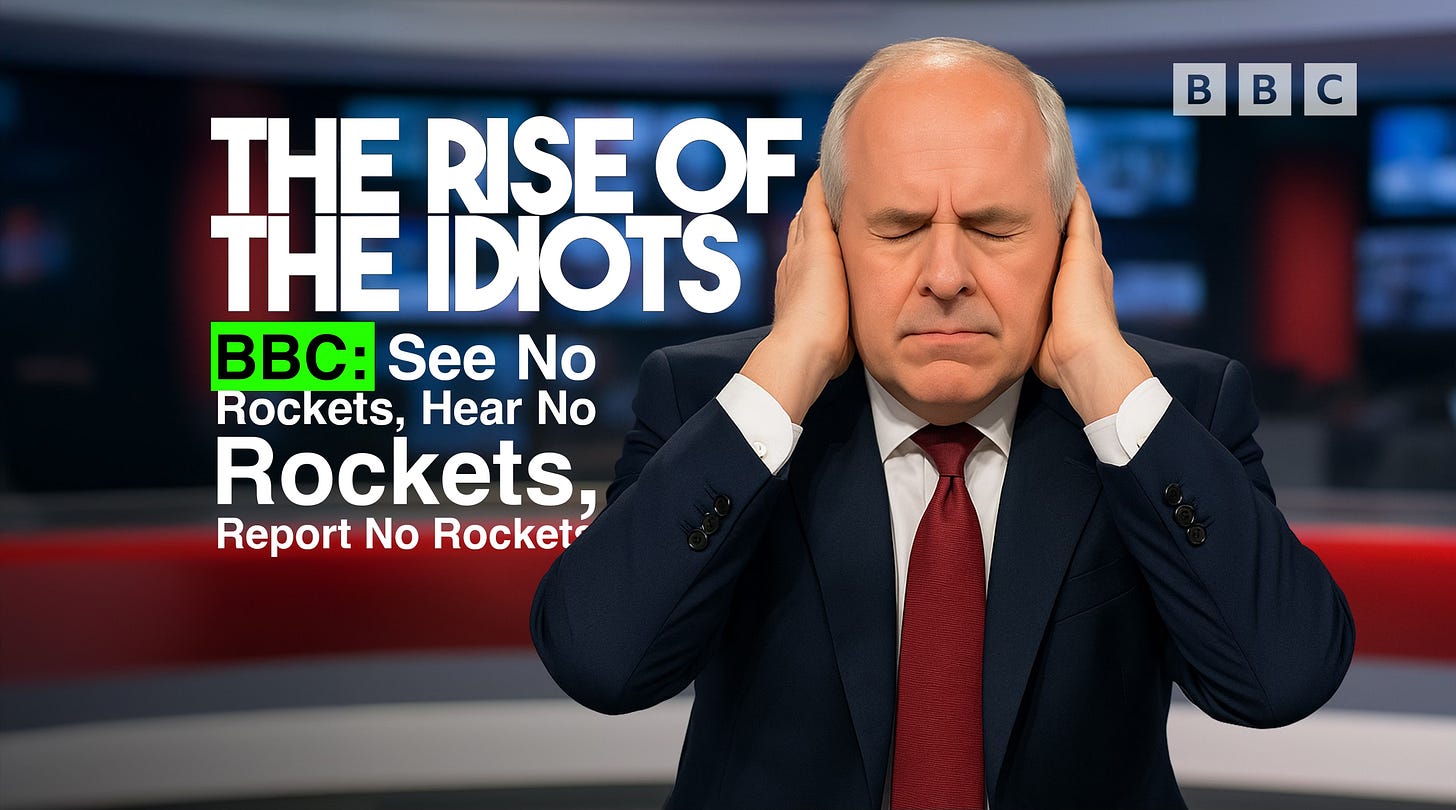BBC: See No Rockets, Hear No Rockets, Report No Rockets
Rockets in Ramallah? The BBC didn’t see a thing.
Remember when journalism meant reporting news instead of auditioning for a moral philosophy podcast? Because apparently, the BBC has now entered its Marcel Marceau era — silent as a mime while rockets pop up in Palestinian Authority-controlled territory like an unfunny magic trick.
Yesterday at Hostage Square, crowds gathered to celebrate the release of …




